Spartans: how the most severe warriors of antiquity lived
Categories: Children | Europe | History
By Pictolic https://pictolic.com/article/spartans-how-the-most-severe-warriors-of-antiquity-lived.htmlSparta was one of the strongest states of ancient Greece. The rest of the Greeks were amazed at the prowess of the Spartans and the social structure of the city. Yes, the neighbors admired Sparta, but they were in no hurry to adopt the customs of its inhabitants. Even in those cruel times, the daily life and customs of the Spartans were perceived as harsh and excessively cruel.
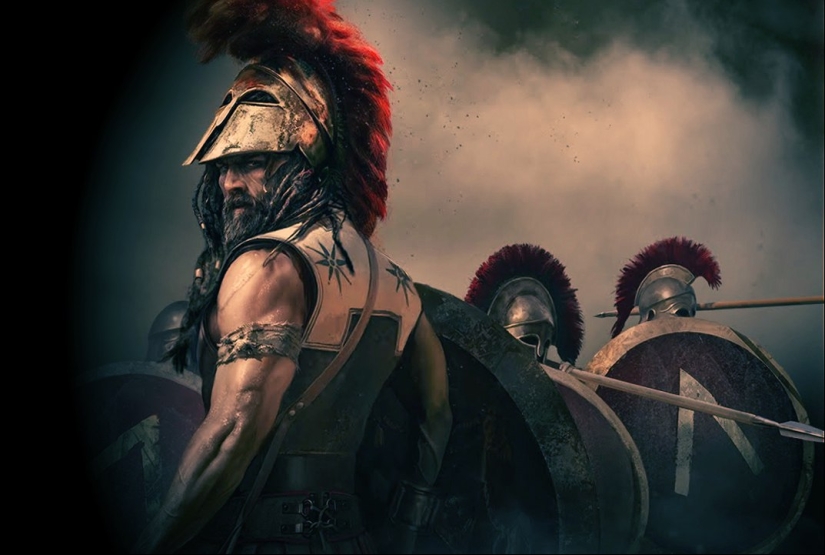
At the beginning of its existence, Sparta, located in the Laconia region, developed as a typical ancient Greek polis. Since the VI century BC, archaeologists have noted a sharp impoverishment of the cultural layer. It was at this time that Sparta introduced the reforms proposed by the legislator Lycurgus, whose name translates as Wolf. Thanks to these transformations, the city was able to defeat neighboring Mesinia and annex its fertile lands to its state.
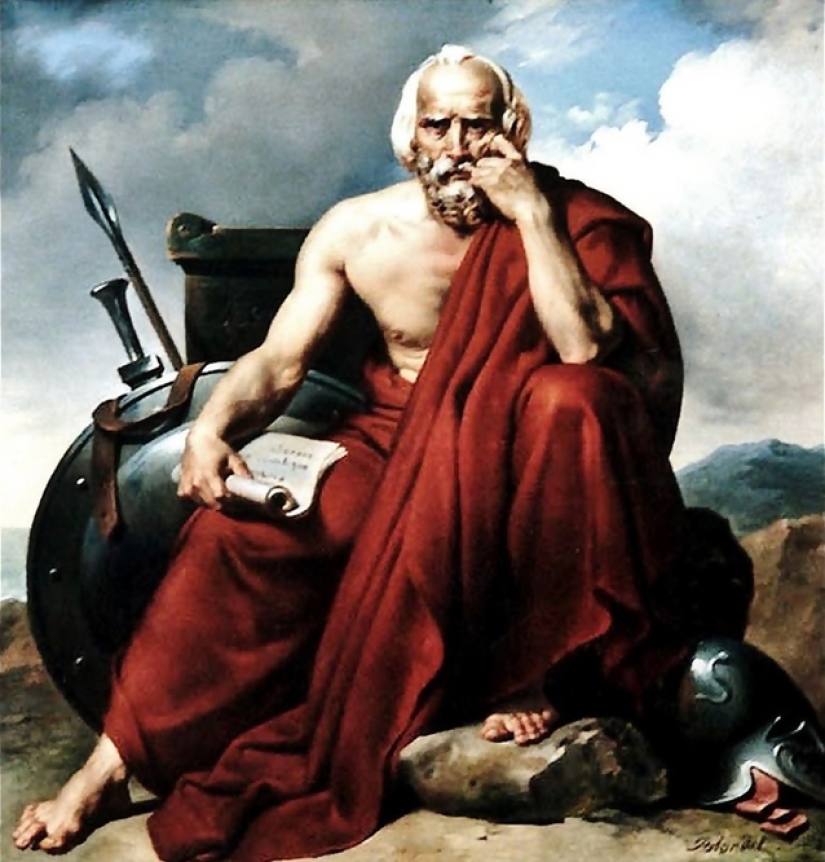 Lycurgus — Ancient Spartan legislator
Lycurgus — Ancient Spartan legislator
From this time, Sparta's ascent to greatness begins. The city becomes the main military force of the region. The power of Sparta was due to its internal structure. Before introducing his reforms, Lycurgus visited Crete, Egypt, and the Middle East and decided that the strength of the state lies in the monotony of the people and their willingness to sacrifice themselves for the well-being of the Motherland.
The city resembled a military camp, where a small number of free Spartan citizens lived surrounded by a large conquered population. Perieks were called free artisans deprived of civil rights, and helots were called semi — slave peasants.
The Spartans were forbidden to travel. They could only get abroad during a military campaign. Foreigners were also not allowed to enter the city, who could bring innovations that pose a threat to traditions. Drama, science, and art were banned. An exception was made only for songs that were limited to military marches.
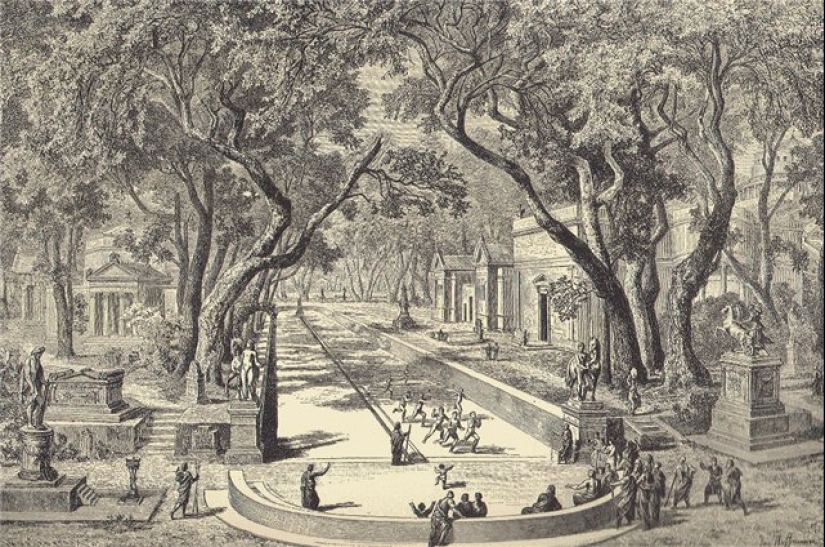
The Spartans abandoned luxury and wealth, which Lycurgus considered the main reason for the fall of any state. Instead of the usual coins, bulky and inconvenient to use bars of iron were introduced. To make the metal brittle, it was tempered in vinegar. It was forbidden to make inscriptions on tombstones. Only kings and soldiers who had committed a heroic act were allowed to write a name on the stone.
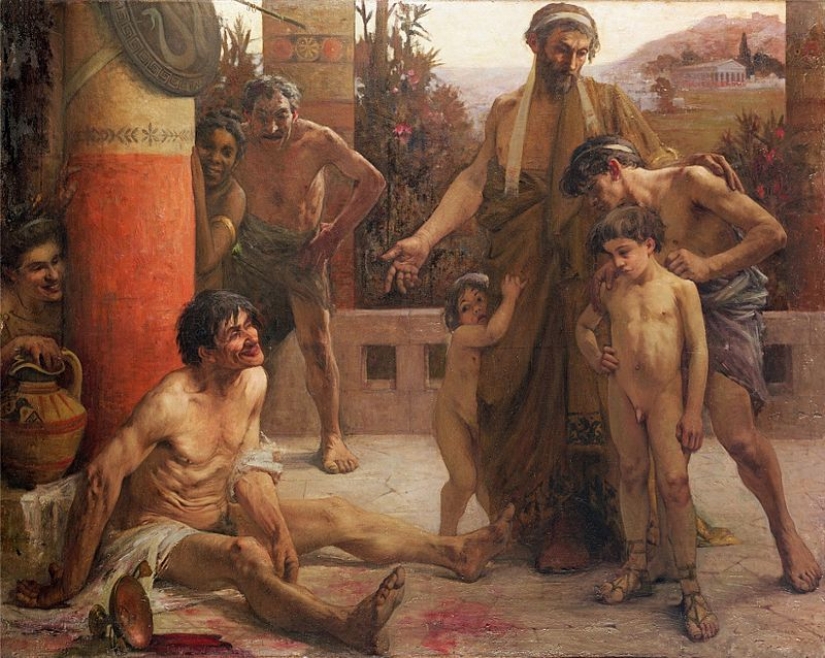
"A Spartan showing a drunken helot to his sons." Artist Fernand Sabatte
Citizens of the city were forbidden to drink alcohol. The Spartans specially got the slaves drunk and showed them to the children. The young men saw how low a drunk person falls and treated wine with disgust.
At the age of seven, Spartan boys were taken away from their parents and sent to military camps. There they were preparing to become warriors. Until the age of 12, they were not given clothes, the children slept on a flooring made of vines, which they had to break themselves with their bare hands. The boys were almost not fed, and they got food by stealing, which was encouraged. The teachers believed that this is how children develop cunning and courage. However, if they were caught stealing, they were severely punished.
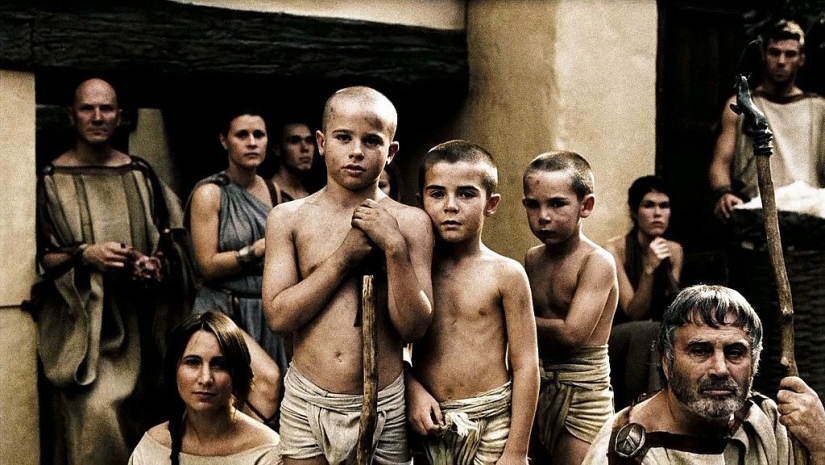
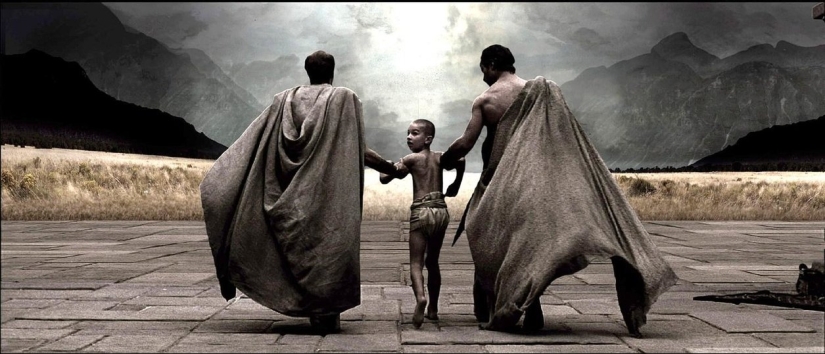
The girls also received training, including military training, and were suitable for the guys. At that time, Spartan women were considered the freest in Greece.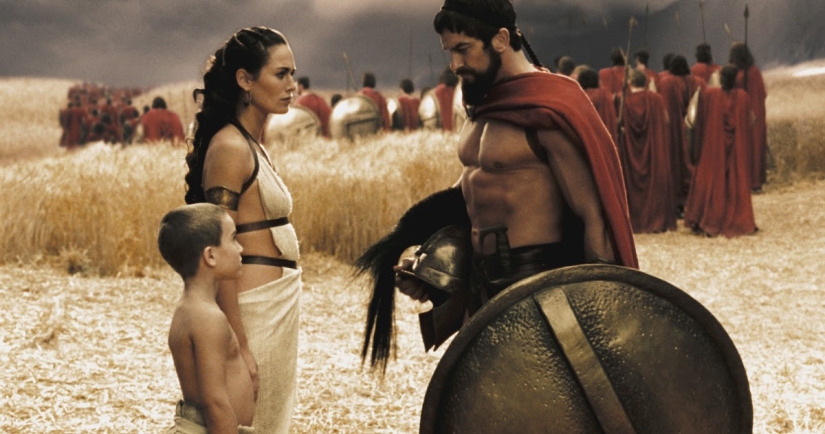
When one of the Athenians told the Spartan queen Gorgo that:
The woman replied:
Aristotle said that, unlike men, Spartans live more freely than other Greek women. He wrote that they are bold in everyday life, physically strong and manage their husbands.
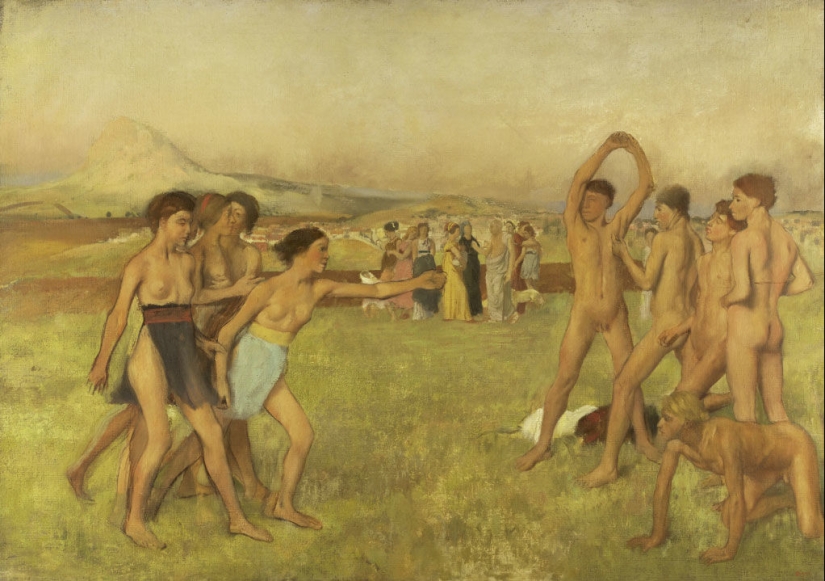
The main task of the Spartan was the birth of a healthy child, from which a strong fighter will grow. That is why the girls were engaged in sports. Speaking in sports competitions, which was unacceptable for girls at that time, they practically did not wear clothes.
Since childhood, the soldiers were taught to speak briefly and to the point. The historian Xenophon wrote that it is faster to wait for a word from a marble statue than from a young Spartan. The manner of speaking briefly and clearly began to be called conciseness in Greece, since Sparta was located in the Laconia region.
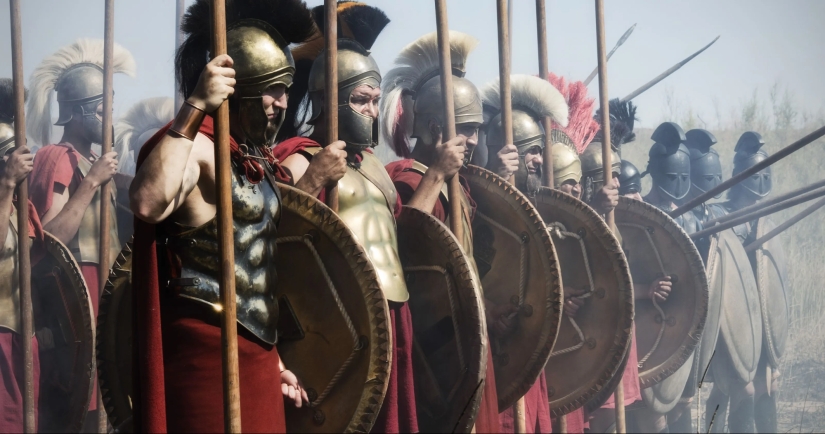
Spartan warriors. Modern reconstruction
An illustrative example of conciseness is associated with the Macedonian king Philip II. In a letter addressed to Sparta, he wrote:
The Spartans answered shortly:

Plutarch wrote that black soup is the food of the elderly. Veterans, realizing that they needed strength for service, refused their meat and gave it to young soldiers.
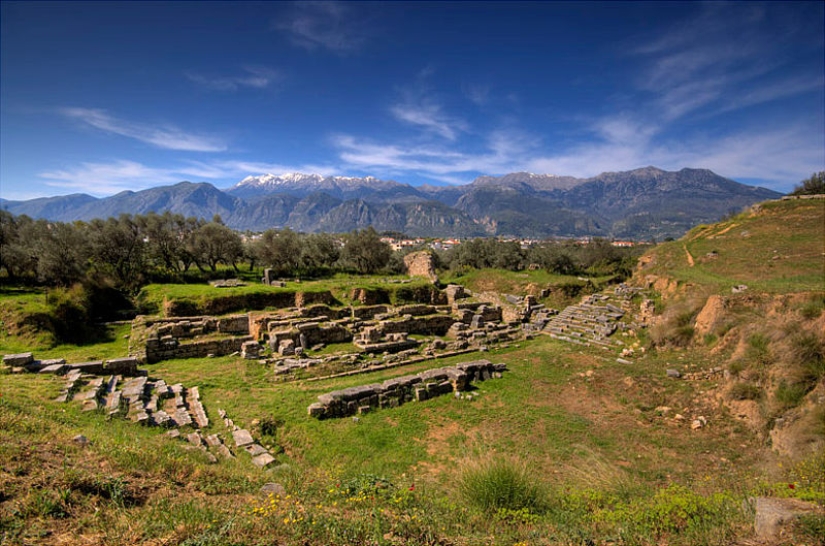
Modern ruins of the once great Sparta
However, nothing lasts forever. Time eats up everything, and it will not be possible to stop it with a harsh upbringing, refusal of money and self-sacrifice. Gradually, the star of Sparta was setting. Its citizens died in numerous wars, there were not enough soldiers even for defense.
The top of society began to violate the precepts of Lycurgus, and accumulated wealth. Neighbors with a developed economy pushed the Spartans on all fronts, and there were no forces to fight back. In 146 BC, the city became dependent on Rome, which, in memory of its former greatness, preserved its internal self-government.
Keywords: Antiquity | Warriors | Education | Greece | Reforms
Post News ArticleRecent articles

It's high time to admit that this whole hipster idea has gone too far. The concept has become so popular that even restaurants have ...

There is a perception that people only use 10% of their brain potential. But the heroes of our review, apparently, found a way to ...
Related articles

One of the most interesting documents left by the ancient Greeks is a work called "The Anabasis of Cyrus", translated from the ...

Colin and Kristin Poole are an amazing creative family. Colin is a world-renowned artist, and his wife Kristin is a wonderful ...

After centuries of tradition and fashion are changing. Once our ancestors in order doing that now would be shot down us off. About ...

New Year's is a time to surprise and delight loved ones not only with gifts but also with a unique presentation of the holiday ...